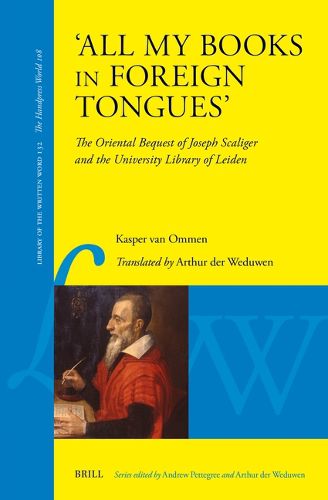Readings Newsletter
Become a Readings Member to make your shopping experience even easier.
Sign in or sign up for free!
You’re not far away from qualifying for FREE standard shipping within Australia
You’ve qualified for FREE standard shipping within Australia
The cart is loading…






In 1609, the renowned scholar Joseph Scaliger (1540-1609) bequeathed 'all my books in foreign tongues' to the library of Leiden University. Scaliger's gift marked the foundation of the extensive Oriental collections in Leiden. How and why did Scaliger collect these rare and precious books? The books and manuscripts, printed and written in Hebrew, Arabic, Ethiopian, Armenian, Russian, and other non-western languages, were kept separate from the rest of the collection of Leiden University Library in an ornamental cupboard: the Arca Scaligerana.
This study offers the first systematic exploration of the printed books in Scaliger's bequest. The books remain extant in Leiden University Library, albeit spread across the collection. By reconstructing the collection, we gain a deeper understanding of Scaliger's extensive scholarly network, the development of oriental philology, the early modern book trade, and the early modern use of catalogues and the development of libraries.
$9.00 standard shipping within Australia
FREE standard shipping within Australia for orders over $100.00
Express & International shipping calculated at checkout
In 1609, the renowned scholar Joseph Scaliger (1540-1609) bequeathed 'all my books in foreign tongues' to the library of Leiden University. Scaliger's gift marked the foundation of the extensive Oriental collections in Leiden. How and why did Scaliger collect these rare and precious books? The books and manuscripts, printed and written in Hebrew, Arabic, Ethiopian, Armenian, Russian, and other non-western languages, were kept separate from the rest of the collection of Leiden University Library in an ornamental cupboard: the Arca Scaligerana.
This study offers the first systematic exploration of the printed books in Scaliger's bequest. The books remain extant in Leiden University Library, albeit spread across the collection. By reconstructing the collection, we gain a deeper understanding of Scaliger's extensive scholarly network, the development of oriental philology, the early modern book trade, and the early modern use of catalogues and the development of libraries.